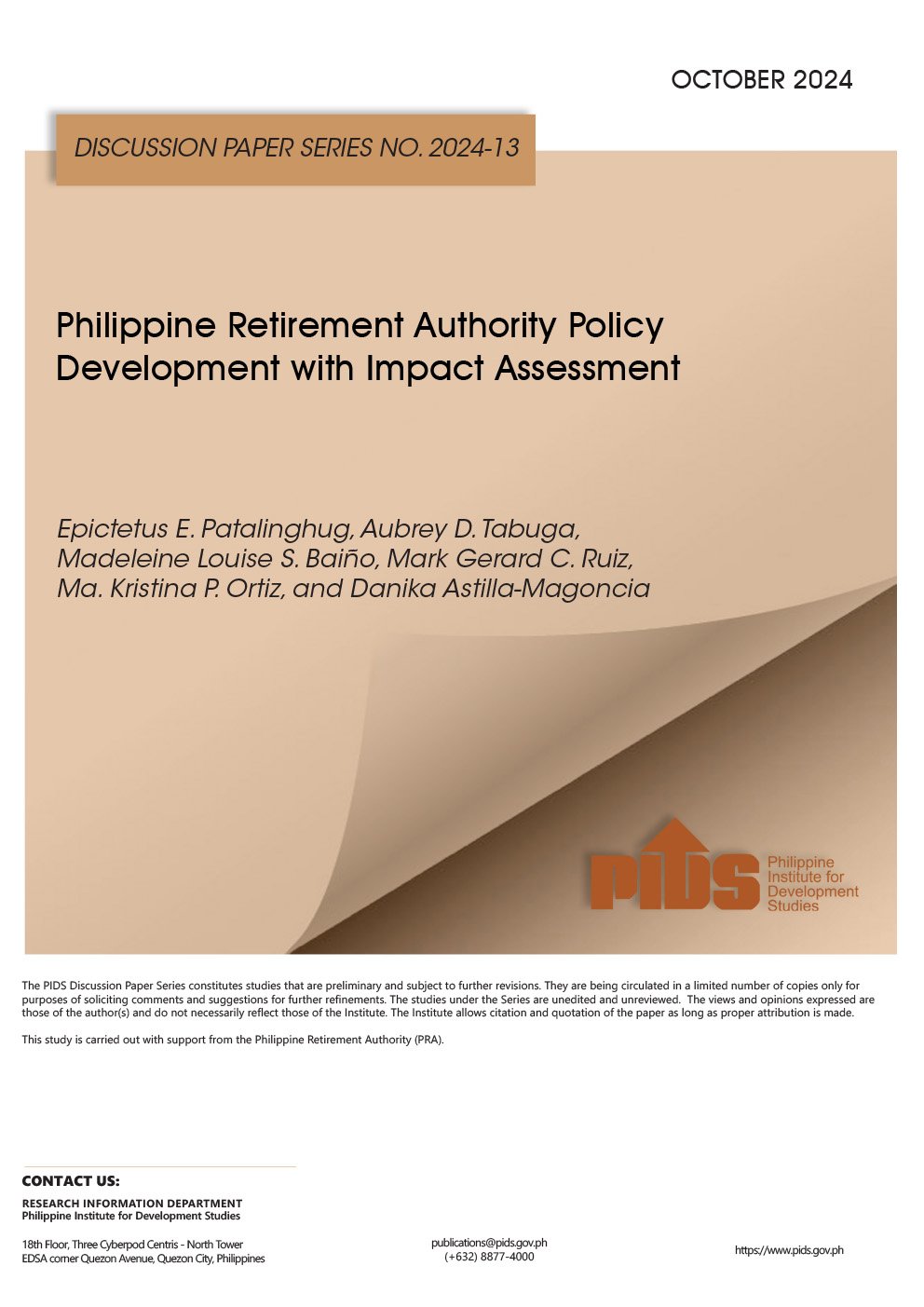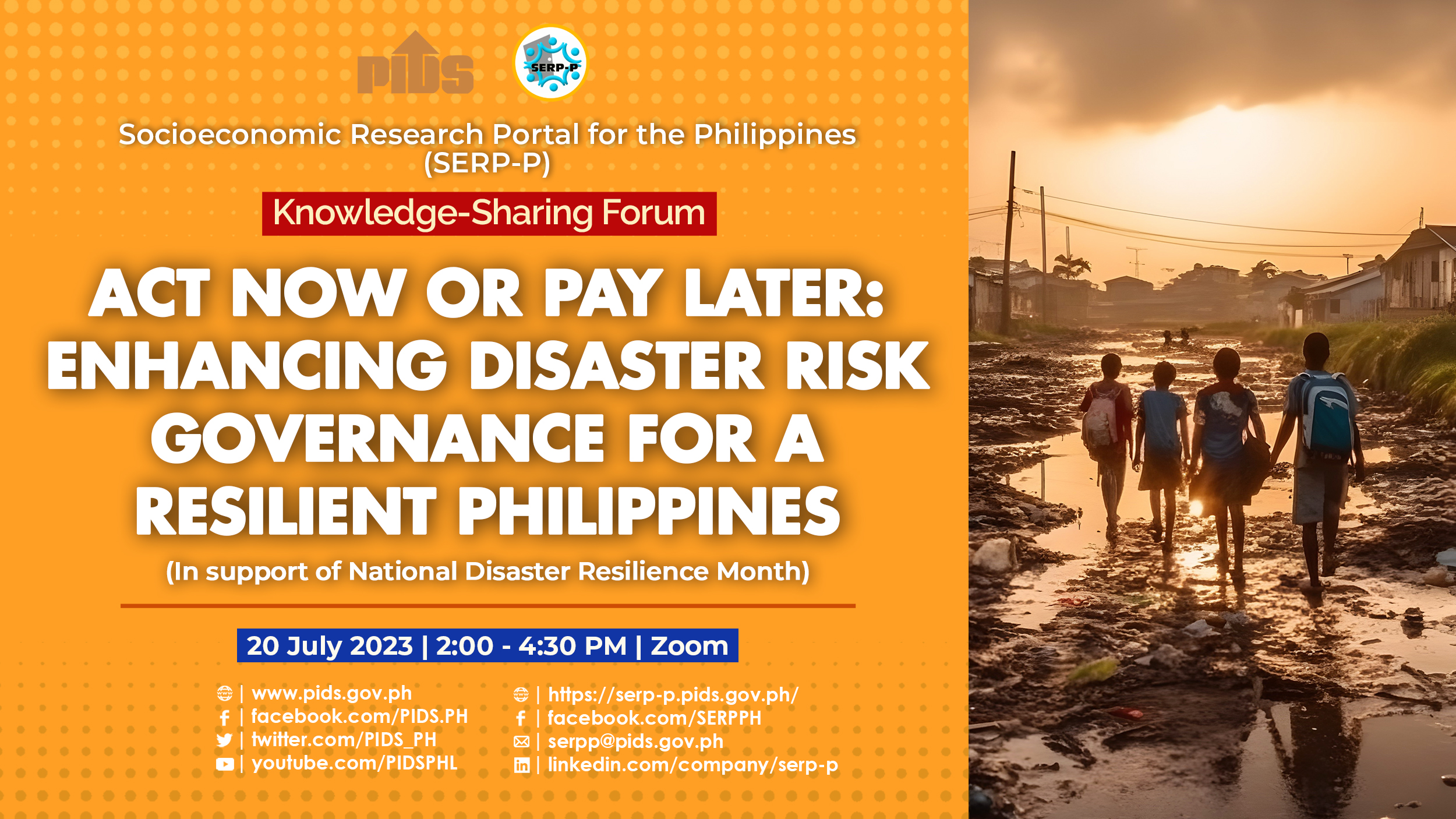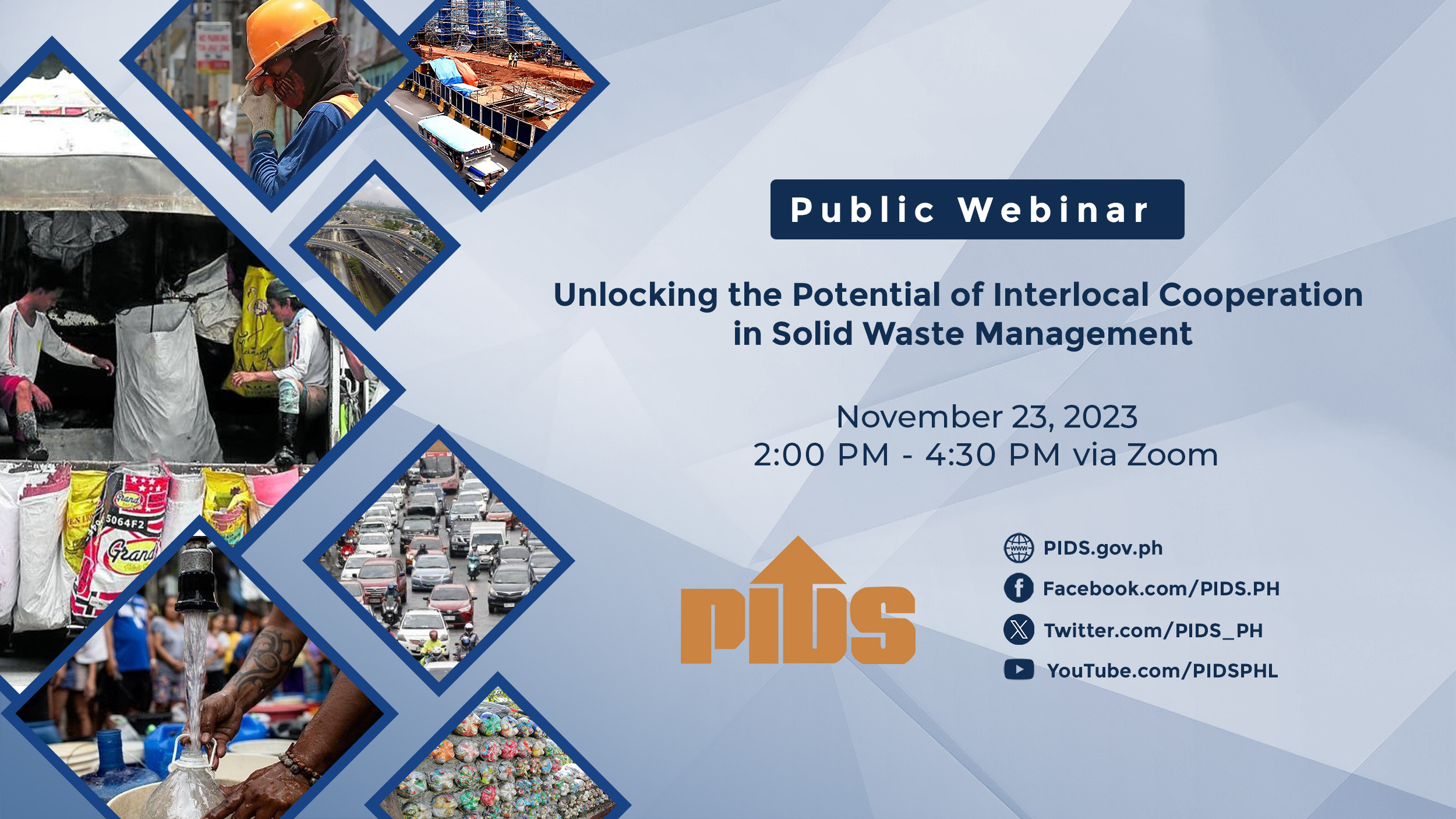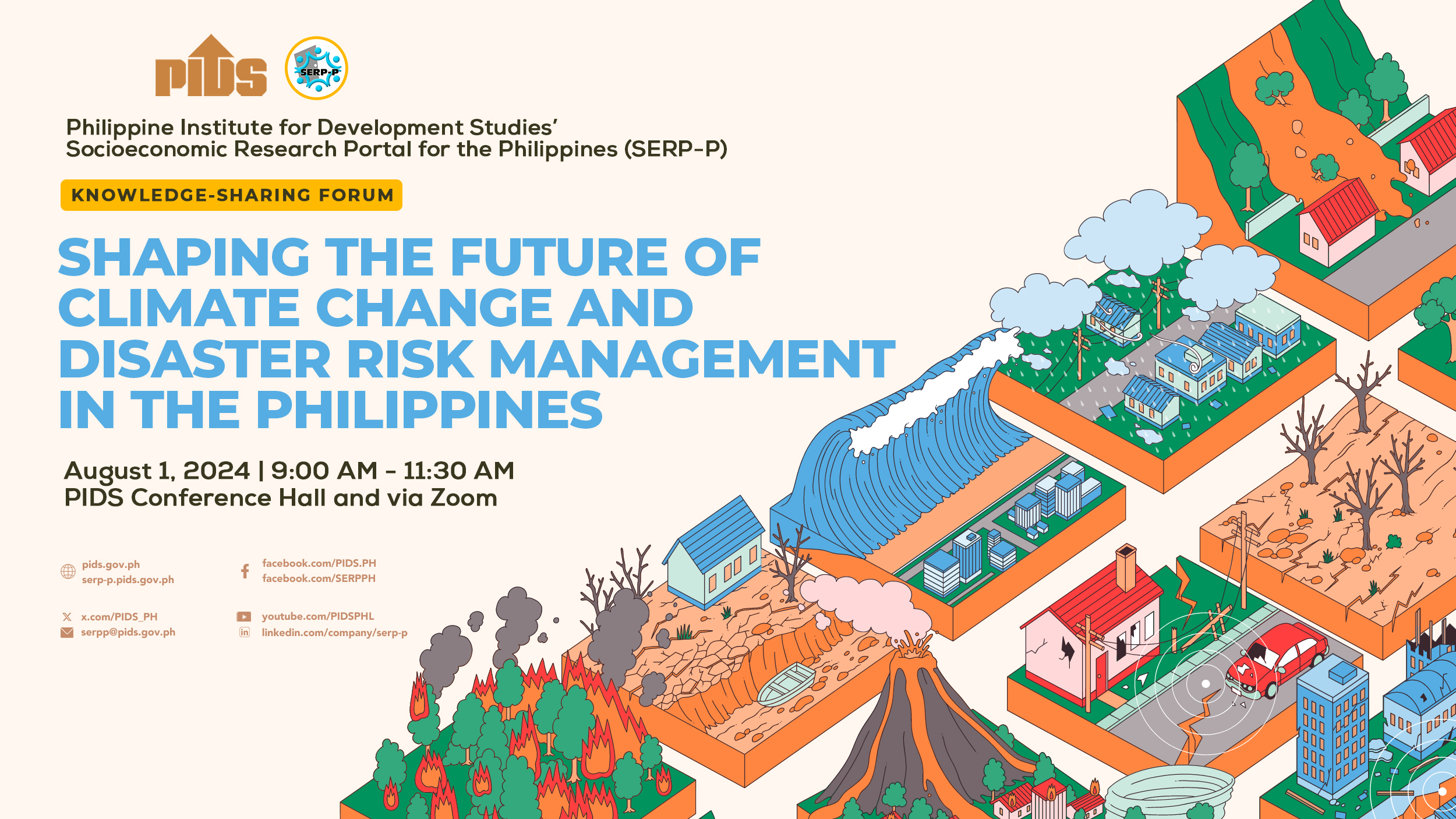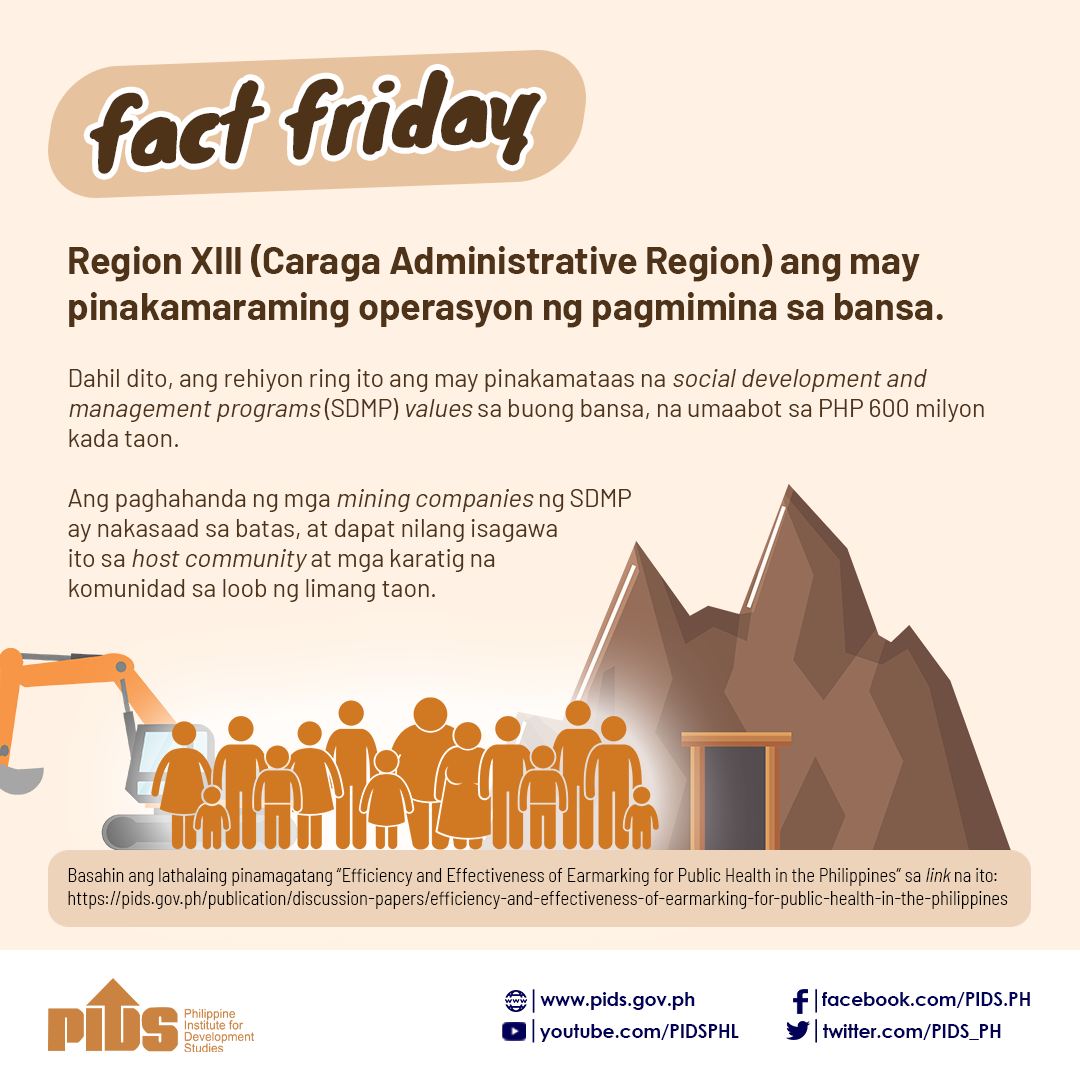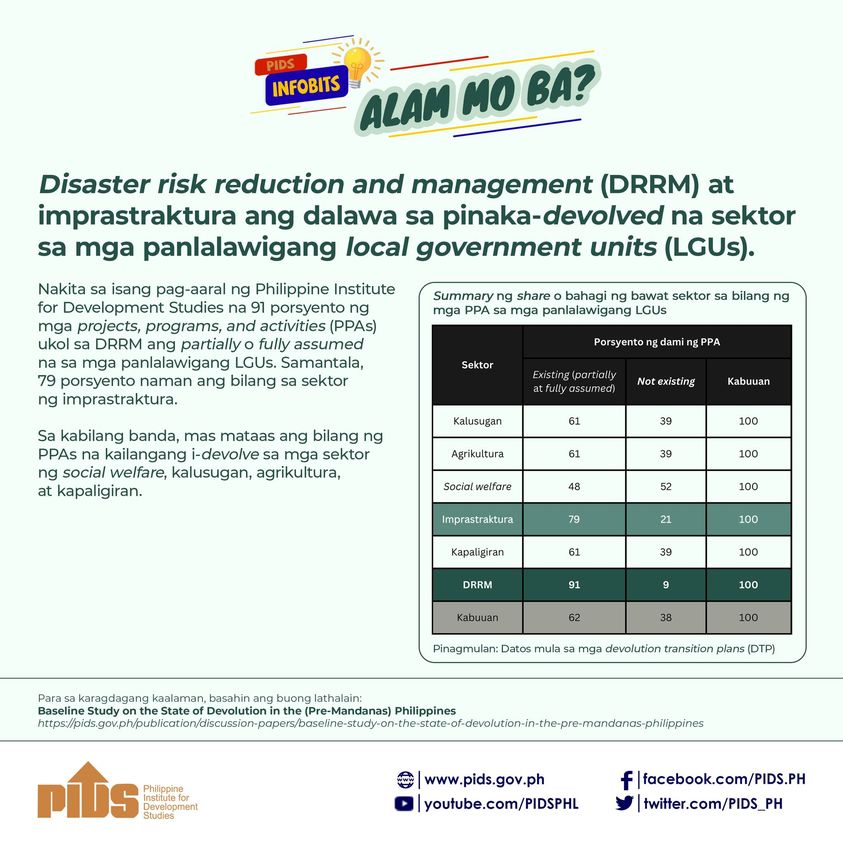Owing to the fact that the country, being at high risk for natural disasters and calamities, the Philippine Institute for Development Studies (PIDS) conducted the webinar entitled “Examining the Philippines’ Bottom-up Approach to Disaster Risk Reduction and Management” on July 28, 2022.
It is the culmination of the series of webinars spearheaded by PIDS for the month of July.
“As we continue to recover from the severe socioeconomic impacts of the COVID-19 pandemic, the threat of natural hazards lingers in our midst. The country’s ranking in the Global Climate Risk Index of 2021 speaks of critical risks we are exposed to, the COVID-19 pandemic and the new contagious diseases that may threaten public health,” Dr. Aniceto C. Orbeta Jr., PIDS President expressed.
The virtual forum featured a PIDS study authored by Dr. Sonny N. Domingo, Senior Research Fellow, and Ms. Arvie Joy A. Manejar, Research Specialist. It foocuses on the policies, institutions, community participation, and public investments in DRRM or Disaster Risk Reduction and Management in the Philippines.
“Specifically, we look at policy and institutional frameworks, and then we back-map budget and expenditure in the national and subnational levels, then we assess how this public investment are allocated, utilized, and inform policy priorities, and then we recommend ways to address these gaps,” Manejar said.
Key insights garnered from it include minimal investment in participatory PPAs, inefficient resource distribution among LGUs, the ambiguous or even difficult process of implementation, dependence on institutional leadership and spending in terms of DRR initiatives, weak reporting, tracking, accounting, and feedback on DRR resources, and the need for transparency and ease of audit regarding public funds and private donations.
“In terms of ways forward, we have to capacitate LGUs on DRR policy and fiscal management. As evidenced by the sub-optimal use of what’s available to them, we need to empower them in terms of using what’s current in terms of assets and resources… We need to enhance reporting and transparency platforms and possibly compelling our local governments to come up with yearly reports on disaster related initiatives and even events in terms of the impacts of disasters in their communities,” Dr. Domingo uttered.
Insights were also heard from officials of the Office of Civil Defense and Bureau of Local Government Finance of the Department of Finance (DOF), together with Abuyog, Leyte LGU represented by Vice Mayor Lemuel Gin Traya.
“Ang DRRM tactics naming dito sa Abuyog ay syempre formulation and furnishing local plans, thorough risk, and hazard assessment, enlisting all possible needs, projects, programs, and activities, Securing MOA and MOU, and acknowledging and encourage DRR partners’ participation. Awareness, preparedness, security, sustainability, and investment yung ginagawa naming,” said Vice Mayor Traya.
An open forum was also conducted to answer queries and provide further clarification for virtual attendees.


